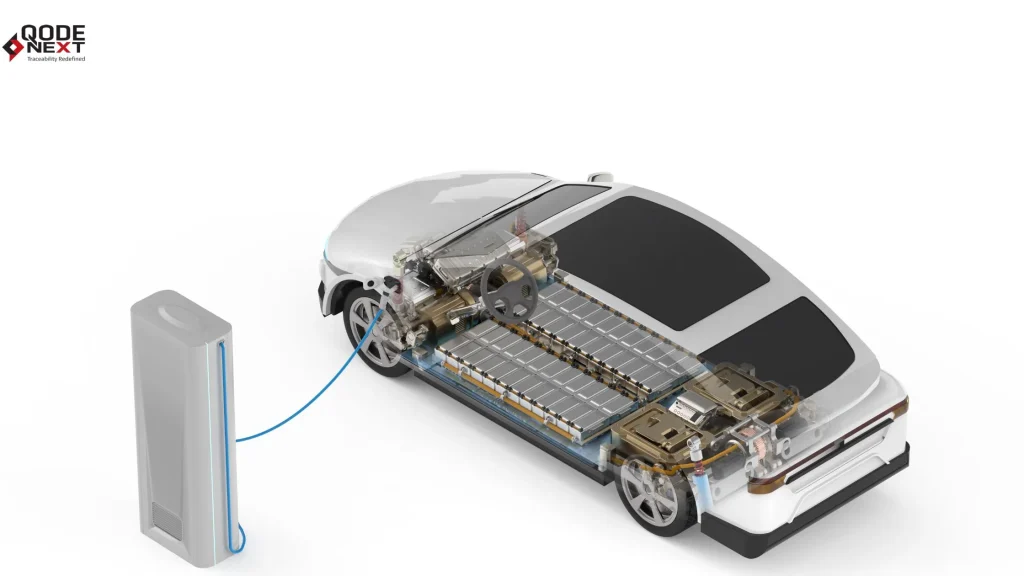
Introduction:
In the dynamic landscape of the automotive industry, the automotive supply chain plays a pivotal role. From sourcing raw materials to delivering the final product, this intricate network involves numerous components and stakeholders. Understanding the future trends and planning strategies is crucial for businesses to stay competitive.
Future Of Automotive Supply Chain
The automotive industry is on the brink of a significant transformation, where the future of the automotive supply chain is poised to play a central role in reshaping the sector. As technology continues to advance, stakeholders in the automotive realm are compelled to adapt to an ever-changing landscape.
Challenges Facing the Current Automotive Supply Chain:
Global Connectivity Issues:
– The automotive supply chain grapples with disruptions in global connectivity, impacting the seamless flow of information across various stages.
– Addressing these challenges requires the implementation of robust solutions that enhance real-time communication and collaboration throughout the supply chain.
Logistical Complexities:
– The intricate process of transporting automotive components across vast distances introduces logistical complexities.
– Streamlining transportation processes and embracing agile logistics strategies become imperative to mitigate challenges and ensure a smooth supply chain operation.
Environmental Concerns:
– Sustainability has become a focal point for the automotive industry, with concerns over the environmental impact of traditional supply chain practices.
– Introducing eco-friendly alternatives into the supply chain is vital for long-term viability and aligning with global sustainability goals.
The Future of Automotive Supply Chain –
As we delve into the future of the automotive supply chain, it is crucial to recognize the dynamic nature of the industry.
Innovations Shaping the Future:
Blockchain Integration:
– Blockchain technology emerges as a transformative force, offering transparency and security in transactions within the supply chain.
– By implementing blockchain, the automotive industry ensures traceability, reducing the risk of fraudulent activities and errors.
Artificial Intelligence (AI) and Machine Learning (ML):
– AI and ML take centre stage, contributing significantly to forecasting demand, optimising inventory, and enhancing overall supply chain efficiency.
– Intelligent algorithms analyse data, enabling real-time decision-making, thereby mitigating risks and improving the accuracy of demand predictions.
3D Printing Revolution:
– The advent of 3D printing revolutionise the manufacturing process, enabling on-demand production of automotive components.
– This innovative approach not only reduces lead times but also minimises waste, fostering a more sustainable and responsive supply chain.
The Future of Automotive Supply Chain – Keyword Insertion (2nd Time):
With these innovative strides, the future of the automotive supply chain is poised for unprecedented advancements.
Challenges and Opportunities:
Supply Chain Resilience:
– Recent global events underscore the importance of building resilient supply chains capable of withstanding unforeseen disruptions.
– Embracing flexibility and redundancy within the supply chain ensures a robust response to challenges, promoting adaptability and continuity.
Collaboration Across the Ecosystem:
– Future success hinges on collaborative efforts among manufacturers, suppliers, and logistics partners.
– Building strong partnerships fosters agility, facilitates information sharing, and promotes collective problem-solving, contributing to a more integrated supply chain.
Investment in Talent and Skills:
– As technology evolves, the demand for skilled professionals capable of navigating the complexities of the future automotive supply chain grows.
– Investment in training programs and talent development is essential to bridge the skills gap and cultivate a workforce prepared for the industry’s future demands.
The Future of Automotive Supply Chain – :
Keeping the future of the automotive supply chain in mind, stakeholders must actively address these challenges and leverage opportunities for sustained growth.
The automotive supply chain stands at a pivotal juncture, with challenges and opportunities shaping its trajectory. By embracing innovation, fostering collaboration, and investing in talent, the industry can navigate the future with resilience and agility, ensuring a robust and sustainable supply chain for years to come.
Automotive Supply Chain Trends
The automotive industry is on the verge of a monumental shift, ushering in an era where the intricacies of the supply chain are rapidly adapting to the demands of an ever-evolving, interconnected, and technologically advanced world.
Key Trends Shaping the Future of Automotive Supply Chain:
Digitalization and Connectivity:
– In the epoch of Industry 4.0, automotive supply chains are undergoing a digital metamorphosis, embracing a data-driven paradigm.
– Real-time monitoring through the integration of IoT devices and sensors is optimising inventory management, production processes, and transportation logistics.
Autonomous Vehicles and Smart Manufacturing:
– The ascendancy of autonomous vehicles is revolutionising manufacturing methodologies, necessitating the advent of smart factories.
– Automation, facilitated by Automated Guided Vehicles (AGVs) and robotics, is becoming the linchpin of production lines, curtailing lead times and enhancing precision.
Electric Vehicle (EV) Revolution:
– The surge in demand for electric vehicles is steering the automotive industry towards sustainability.
– The future automotive supply chain is tasked with addressing the unique challenges posed by EV production, including the intricacies of battery manufacturing and recycling.
Globalization and Localization:
– Automotive corporations are reassessing global supply chain strategies in response to geopolitical shifts and potential disruptions.
– The trend toward regionalization and localised sourcing is gaining momentum, mitigating risks associated with lengthy and intricate supply chains.
Resilience and Risk Management:
– The disruptions stemming from the COVID-19 pandemic underscore the critical importance of constructing resilient supply chains.
– Future automotive supply chains are placing a premium on robust risk management strategies, encompassing supplier diversification and fortified contingency plans.
Sustainable Practices:
– Environmental consciousness is steering the automotive industry towards sustainable practices.
– The future automotive supply chain is pivoting towards eco-friendly materials, energy-efficient processes, and an overarching reduction in the carbon footprint throughout the supply chain.
The Future of Automotive Supply Chain:
– Woven into the fabric of these transformative trends is the pivotal concept of adaptability and innovation, encapsulating the essence of the future of the automotive supply chain
– The trajectory of the future of the automotive supply chain is inextricably linked to the assimilation of emerging technologies and the steadfast commitment to sustainable practices.
– As enterprises navigate the intricacies of the future of the automotive supply chain, a strategic, forward-thinking approach becomes not only advisable but imperative.
– The challenges and opportunities embedded in the future of the automotive supply chain underscore the necessity for a proactive and agile mindset.
The path forward for the automotive supply chain is a dynamic landscape, sculpted by technological advancements, a commitment to sustainability, and an unwavering focus on resilience. Companies that proactively embrace the future of the automotive supply chain are poised not only to weather the changes but to flourish in this epoch of unprecedented transformation.
Automotive Supply Chain Planning
– The automotive industry is a complex ecosystem that relies heavily on efficient supply chain planning to meet the demands of a dynamic market.
– Automotive supply chain planning involves the strategic coordination of various processes to ensure seamless production, timely delivery, and overall operational efficiency.
Key Components of Automotive Supply Chain Planning:
Demand Forecasting:
– Accurate demand forecasting is crucial for automotive supply chain planning.
– By leveraging advanced analytics and historical data, automakers can anticipate market trends and adjust production schedules accordingly.
Inventory Management:
– Maintaining optimal inventory levels is essential for preventing shortages or excess stock.
– Automotive supply chain planners use real-time data to strike a balance, avoiding bottlenecks and reducing carrying costs.
Supplier Collaboration:
– Collaborative relationships with suppliers are paramount in the automotive industry.
– Timely communication and information exchange with suppliers help streamline the procurement process and enhance overall supply chain visibility.
Production Planning:
– Efficient production planning involves scheduling and sequencing operations to meet demand while minimising costs.
– Advanced technologies, such as AI and IoT, play a crucial role in optimising production processes.
Logistics and Distribution:
– Streamlining logistics and distribution channels is vital for on-time deliveries.
– Real-time tracking and route optimization technologies enhance the efficiency of the distribution network.
Risk Management:
– Automotive supply chain planning must incorporate risk management strategies.
– Identifying potential risks, such as geopolitical issues or natural disasters, enables proactive measures to mitigate disruptions.
Adaptability and Resilience:
– A resilient supply chain can quickly adapt to unforeseen challenges.
– Continuous monitoring and scenario planning help automotive companies build agility into their supply chain processes.
Automotive Supply Chain Planning: A Strategic Imperative
– In the highly competitive automotive industry, efficient supply chain planning is not just a necessity but a strategic imperative.
– Companies that prioritise and invest in robust supply chain planning processes gain a competitive edge by responding swiftly to market changes.
Automotive Supply Chain Planning: A Competitive Advantage
– By incorporating cutting-edge technologies and fostering collaboration across the supply chain, automotive companies can create a seamless and responsive planning framework.
– Automotive supply chain planning is the backbone of a successful and resilient automotive ecosystem.
– Companies that embrace innovation, prioritise collaboration, and repeatedly emphasise the significance of *Automotive Supply Chain Planning* are better positioned to navigate the challenges and opportunities in the dynamic automotive landscape.
Automotive Supply Chain Process
– The Automotive Supply Chain Process stands as a pivotal and intricate network, playing a fundamental role in the manufacturing and delivery of vehicles to consumers globally.
– In this intricate web, multiple stages and stakeholders collaborate seamlessly to facilitate the flow of components and finished products.
Key Components of the Automotive Supply Chain Process:
Raw Material Acquisition:
– The initial link in the Automotive Supply Chain Process involves the acquisition of raw materials, ranging from steel and aluminium to various polymers.
– These raw materials form the basis for the creation of essential automotive components and parts.
Component Fabrication:
– Once the raw materials are secured, they undergo a series of manufacturing processes to yield individual components like engines, chassis, and electronic systems.
– Precision and rigorous quality control are paramount at this stage to ensure the reliability and safety of the final product.
Assembly Line Operations:
– At the core of automotive production lies the assembly line, where diverse components converge to construct the final vehicle.
– The implementation of robotics and advanced automation technologies serves to streamline the assembly process, enhancing overall efficiency.
Logistics and Distribution:
– The Automotive Supply Chain Process heavily relies on a well-organised logistics and distribution network to transport components and vehicles to various assembly plants and dealerships.
– Real-time tracking systems play a pivotal role in ensuring punctual deliveries and minimising disruptions.
Supplier Relationships:
– Establishing and maintaining robust relationships with suppliers are critical for the uninterrupted flow of materials and components.
– Collaborative efforts and effective communication with suppliers enhance the resilience of the Automotive Supply Chain Process.
Quality Assurance:
– Stringent quality control measures are enforced at different stages of the supply chain to identify and rectify any defects or deviations from standards.
– Continuous improvement initiatives contribute to elevating the overall quality of automotive products.
Automotive Supply Chain Process – An In-depth Examination:
– The Automotive Supply Chain Process, as its nomenclature suggests, represents a comprehensive and interconnected series of steps governing the movement and transformation of raw materials into finished vehicles.
Automotive Supply Chain Process
– The term itself encapsulates the complexity and interdependence of the steps involved in bringing a vehicle from conception to the hands of consumers.
– – Each stage in the process is a vital puzzle piece, contributing indispensably to the creation of reliable, safe, and innovative automotive products.
– The Automotive Supply Chain Process is a multifaceted journey that demands meticulous planning, collaboration, and adaptability from all stakeholders involved.
– – The Automotive Supply Chain Process serves as the backbone of the automotive industry, ensuring that vehicles reach consumers with precision and efficiency.
– – As technology advances and global markets evolve, staying abreast of industry trends and adopting innovative solutions are imperative for the sustained success of the Automotive Supply Chain Process.
FAQs
What are the key challenges in the automotive supply chain?
Challenges include global sourcing complexities, demand fluctuations, and the need for stringent quality control.
How does technology impact the future of the automotive supply chain?
Technology, such as AI and IoT, enhances efficiency, reduces lead times, and improves overall supply chain visibility.
What trends are shaping the future of automotive supply chain planning?
Trends include demand sensing, real-time analytics, and predictive modelling to optimise planning processes.
How does sustainability play a role in the automotive supply chain?
Sustainability is increasingly critical, with a focus on eco-friendly materials, energy-efficient production, and recycling initiatives.
How can businesses adapt to changing automotive supply chain processes?
Businesses can adapt by investing in flexible manufacturing processes, embracing digitalization, and fostering collaboration with suppliers.
What role does risk management play in the automotive supply chain?
Risk management involves identifying potential disruptions and implementing strategies to mitigate the impact, ensuring business continuity.
How can businesses stay competitive amidst evolving automotive supply chain trends?
Staying competitive requires constant innovation, embracing new technologies, and fostering agility in adapting to changing market demands.
Conclusion:
In conclusion, the automotive supply chain is a complex ecosystem that demands meticulous planning, adaptation to trends, and embracing future technologies. As the industry evolves, staying competitive is imperative. Qodenext stands as a testament to innovation, shaping the future of the automotive supply chain with cutting-edge solutions.







